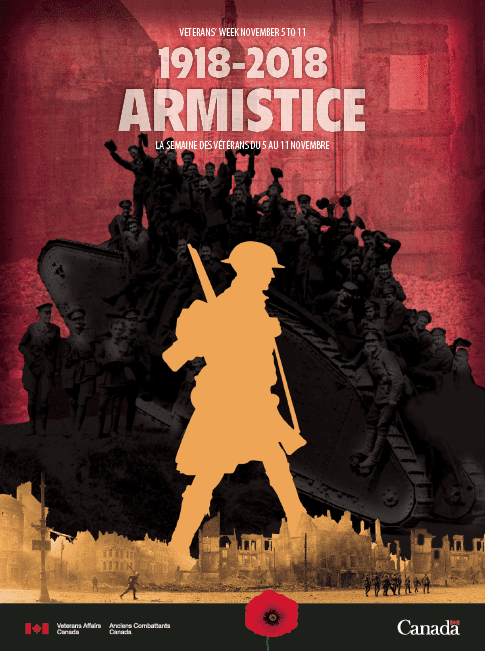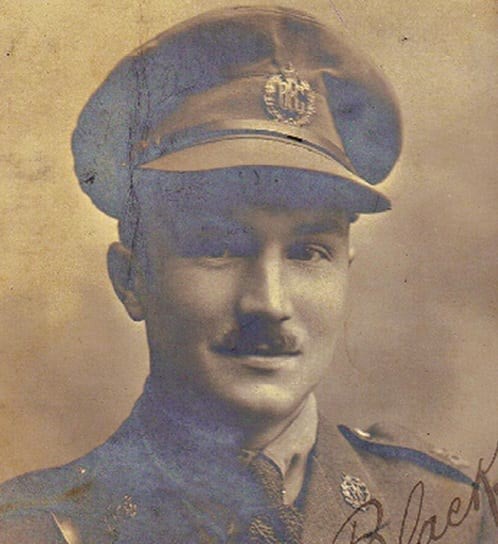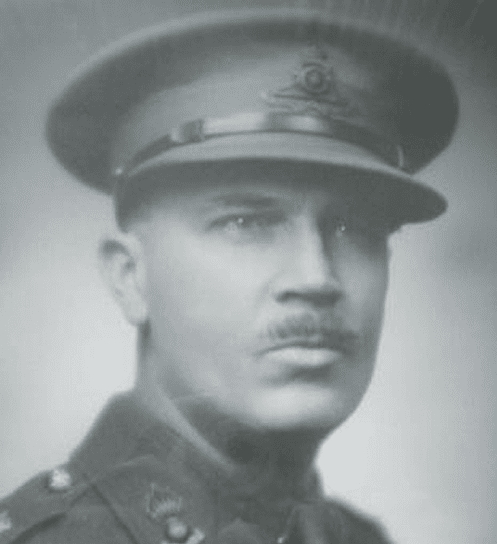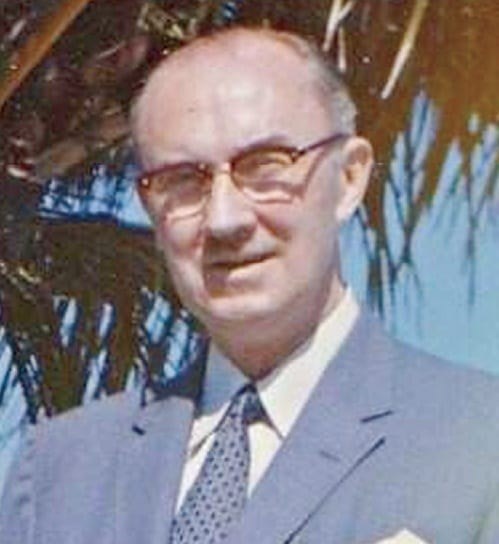Grant Black reflects on his family's service to the nation
BY GLORIA J. KATCH Special to the VOICE
For Grant Black, the advent of Remembrance Day has been one of discovery, in addition to the recollection and tribute to all the Canadian soldiers and three generations of his family who devoted much of their lives in World Wars I and II.
“Lest we Forget,” which is typically a part of the Remembrance Day edict, became a re-learning process for Grant, as his daughter’s research into their roots unearthed many new details and defining moments of his past. At 89, the reflection for Grant comes with a sense of fondness and a deeper understanding of the lives lived during a tumultuous period in history.
 Unequivocally, his revelations surface at a perfect time, as the treaty marking the end of World War I occurred in 1918, making Remembrance Day 100 years old, noted Grant. As a former school teacher for many years, and then a principal of several schools including Mapleview School in Pelham, Grant recalls taking classes to attend Remembrance Day ceremonies. However, this important date in history was always held closer to his heart, and meant more than just fulfilling a job requirement. For Grant, his family and forefathers, devoted a large part of their lives to the war effort and have the badges and stripes to prove it.
Unequivocally, his revelations surface at a perfect time, as the treaty marking the end of World War I occurred in 1918, making Remembrance Day 100 years old, noted Grant. As a former school teacher for many years, and then a principal of several schools including Mapleview School in Pelham, Grant recalls taking classes to attend Remembrance Day ceremonies. However, this important date in history was always held closer to his heart, and meant more than just fulfilling a job requirement. For Grant, his family and forefathers, devoted a large part of their lives to the war effort and have the badges and stripes to prove it.
One such recent search of Grant’s family tree included learning that his grandfather on his mother’s side was Lieutenant Colonel Thomas William Hubert Young, who received a ceremonial sword, known as the Order of St. John of Jerusalem, in honour of his service in the Canadian Medical Corporation, commanding several military hospitals during World War I. Grant only shrugs his shoulders in a bemused fashion at the ornate and lengthy title awarded pioneers in health care. The Order of St. John eventually became known for the future organizations it founded, such as St. John Ambulance and various hospitals erected during the war and post-war periods.
While Grant’s father, also named Grant, was born in 1899, he served by assisting patients in Camp Borden and Leaside Hospital in WWI. By WWII he received his doctorate and became an anesthesiologist, and his specialty was treating soldiers poisoned by chlorine, a lethal nerve gas. Grant Sr. spent a great deal of his time in Camp Borden near Trenton and various hospitals treating soldiers sent back to Canada.
Grant said his grandfather, Malcolm, had three sons and a daughter, whose lives were changed by the war. Most of his uncles were born around 1890 and stationed in Europe, mostly Belgium and France. During WWI, his uncle Stuart Black quickly demonstrated a proficiency in aviation when he was fresh out of high school, and made lieutenant in record time. He joined the Royal Force Corps, 99th Squadron in England as a fighter pilot, who targeted and eliminated long-range industrial sites in Rhineland, Germany. Although he was an adept pilot, he was shot down over Germany and became a prisoner of war in 1918. Grant still has the original notice mailed to his father declaring his uncle Stuart was missing in action. The heart-wrenching part for his relatives was “the not knowing” whether he was dead or alive, since communications back then were poor, he said.

Fortunately, Stuart was released not long after, when the war was over. Grant recalls as a youth spending a little time with Stuart at a cottage in Port Colborne, though the fighter pilot didn’t talk much about his time overseas. World War I ended with some 67,000 Canadians killed and 250,000 wounded.
Similarly, Grant’s other uncle, Kenneth, joined the Royal Canadian Artillery as a gunner, and was stationed in France and Belgium until he was wounded two years later, in 1918. He returned to Halifax the following year, and served the rest of his time working as a medical professional.
War detrimentally affects the lives of entire families. Grant stressed how difficult it was for soldiers fighting to leave their wives and children behind. Grant wasn’t born until 1928, but knew his mother was also employed as a doctor during WWI, which was rare for a woman at the time. She worked at a sanatorium, and volunteered by selling stamps to raise money to prevent tuberculosis (TB). Grant says his entire family are either doctors or teachers.
Grant does remember the rhetoric: “They called World War I, the ‘Great War’ until the Second World War out did the first one.”
While Canada was never bombed in either World War I or II, there was always fear of that possibility, because of its connection to the British commonwealth, he said. Canada’s east coast was constantly monitored and actively patrolled by German warships and submarines. He also recalls hearing about several German cargo ships in the Great Lakes Systems in Canada that navigated here through the St. Lawrence Seaway. One ship even made it to Port Colborne, but many of the crews on these ships were captured and imprisoned.

When WWII erupted, Grant was about 16 years old. He joined the air cadets, but was too young to officially serve in the army. Despite the tragedy of war, he admits he would’ve served if he could have. World War II also saw his Uncle Kenneth, because of his prior expertise, re-enlisting, and he eventually became commander of the 12th Field Battery, Royal Canadian Artillery, until 1939.
As Major, Kenneth was sent overseas in 1941, but the following year he returned to Canada and was appointed to the directorate of military training for the national defense headquarters in Ottawa. By 1944, Kenneth was decorated as a Member of the Order of the British Empire, and promoted to the rank of Lieutenant-Colonel. Unfortunately, due to ill health, he died in hospital in London, Ontario in April 18, 1945. While Kenneth wasn’t considered a casualty of the war, there were in excess of 44,000 dead and more than 54,000 wounded Canadians by 1945.
During WWII, Grant recalls his father also talking about treating several German soldiers at Camp Borden that were injured, and shipped there.
According to Grant, the Germans were happy to remain in Canada, because they didn’t want to return to the front lines to fight in the Russian campaign, which eventually led to Germany’s demise. Grant said his father was aware of Adolf Hitler’s plans to exterminate the Jews, although back then there was not a great deal of publicity or immediate awareness about it.
“Things were different then. There was also the Japanese internment in Canada, because of the bombing of Pearl Harbour, we saw them as enemies,” noted Grant.
As the war progressed there were many changing negotiations and deals, regarding allies and enemies. Most importantly, he recalls an overall fear of Germany’s aggressive and relentless onslaught to takeover Europe, and eventually the rest of the world. When the U.S. dropped the atomic bomb on Japan, he said many Canadians were worried that Germany was going to adapt nuclear warfare and similar technologies.

“The Germans were working to improve its design, and it was only a matter of time before they used it. The Germans had a lot of science,” said Grant.
Like the proverbial bell, war takes its toll. Grant’s family being medics experienced a great deal of trauma, but have lived to bear witness to history. Today, Grant says societies think differently about war, and recognize the atrocity of killing other human beings. Talking about soldiers, he said, “Look what it does to them. Veterans come back and some commit suicide, because of the shock of war. It’s the mental health part of it, and they are trying to help people deal with it better today.”
During last year’s Remembrance Day, a speaker came to Grant’s retirement home with models and pictures of World War II, and the contributions made by famed Canadian fighter pilot, Billy Bishop, which he clearly found interesting. Grant makes it a point to attend Armistice Day services. As a former principal and teacher, Grant is still learning, especially about his own family.
Another genealogical search of the Black family dates back several generations to United Empire Loyalists, and a bloodline connection to William McDougall, who was later appointed Lieutenant–Governor of the Northwest Territories by first Canadian Prime Minister, John A. MacDonald.
McDougall was sent to Alberta to help settle skirmishes and disputes between Metis, European settlers and the United Empire Loyalists settling in the Red River Valley area in Alberta. This occurred in 1867, just prior to Confederation. There were many other large and small battles that occurred before Canada became the country we know today.
Grant admits, “The smaller [battles] don’t affect us as much, but it’s still very historically interesting for me.”
Despite all the tragedy and changes created by the two major wars, Grant looks upon Remembrance Day with reverent nostalgia. As for Grant, it’s a day for everyone to become a history buff. “Remembrance Day is not like any other holiday. It’s not a celebration, it’s remembering.” ♦


